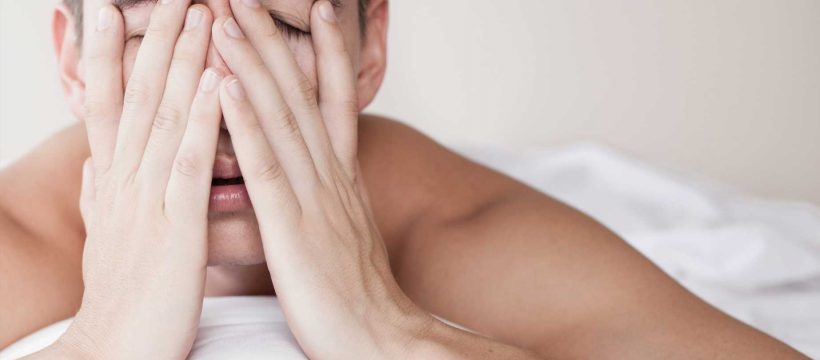IF you've been struggling to sleep through the past few weeks of muggy nights, you're not alone.
There's nothing worse than being in bed when you're hot and sticky.
But it's not just the lack of air that's making us so tired.
It turns out that this hot weather is also giving us more horrifying nightmares when we do eventually drop off.
Dr Neil Stanley, ex-chairman of the British Sleep Society, claims that sleeping in rooms over 18'c can increase your risk of being terrorised in your sleep by all kinds of zombies and wobbly teeth.
Keep your room at 18'C or lower
Dr Stanley says that in order for us to get a good night sleep, we need to lose around 1'C of our internal body temperature, which sits at around 37'C.
If you're in a room that's too warm, your body can't dump that excess heat – and that means that your sleep will be disturbed.
"If you're sleep deprived, we see greater sleep intensity – and that in turn leads to greater brain activity while you're dozing," he said.
"That causes you to dream more, for your dreams to be more vivid, and for you to remember your dreams.
Poor sleep = higher risk of nightmares
"And, unfortunately, that goes for nightmares, too, which can be intense."
When we have a disturbed night's sleep, we're more likely to enter a phase called "Rapid Eye Movement".
That's the bit of sleep where we're most mentally active – we have vivid dreams which may cause us to lash out and wake ourselves up.
Our brain-waves act in a similar way during REM to when we're awake, and it's the time when nightmares typically occur.
So if you are struggling with nightly terrors at the moment, it's time to lower the temperature.
Try the following tips for a better kip tonight:
1. Try cotton or silken sheets
Dr Stanley suggests sleeping under "natural fibres, cottons and silks" to stay cool and he says on his blog that his own bed is dressed with "pure wool, long, continental single duvets and pure cotton bed linen".
He also sleeps in cotton pyjamas and uses two down and feather pillows.
So ditch the nylon if you want a good kip.
2. Sleep naked
But pyjamas might not be the best idea for everyone.
Many other experts agree that sleeping naked is ideal for helping us stay in a deep sleep because it keeps us at our optimum temperature.
In the summer, it can be hard to regulate how hot our bedrooms so removing those extra layers should help keep us cool as we kip.
You might want to consider leaving your socks on if you are worried about getting too chilly.
As you sleep, your circulation changes and that can leave many of us waking up in the middle of the night with cold toes.
When we're in the land of nod, our body has a chance to grow and repair and when that's happening, our blood is focused more centrally – meaning that our extremities become colder.
3. Avoid eating late
Again, Dr Stanley says that he tried to avoid eating too late at night.
And if you're worried about having weird dreams, then you definitely want to try to have an earlier dinner.
A 2015 study looked the diet, sleep and dream experiences of almost 400 uni students.
It found that it's not just certain types of foods (spicy meals and dairy) that cause weird dreams, eating late at night, in general, can also be to blame.
They put it down to the fact that nocturnal snacking can lead to gastrointestinal discomfort – which in turn can cause sleeping disturbances.
4. Open the window
Sounds obvious but just sleeping with a little breeze can make a huge difference.
If you sleep next to a noisy, busy road, try opening a window in another room instead.
5. Ditch the booze
You might think that a few cheeky bevies actually help to get you to sleep but you'd be mistaken.
Although you might drift off more quickly, you'll actually have a much more disturbed night if you've been boozing – increasing your likelihood of nightmares again.
Oh, and alcohol can cause night sweats in some people which is less than ideal in the current climate.
So the key really is trying to keep as cool as possible and just taking away any other burdens, from a full belly to sweaty PJs.
Source: Read Full Article

